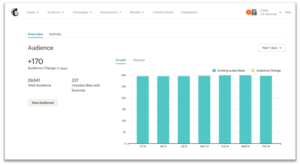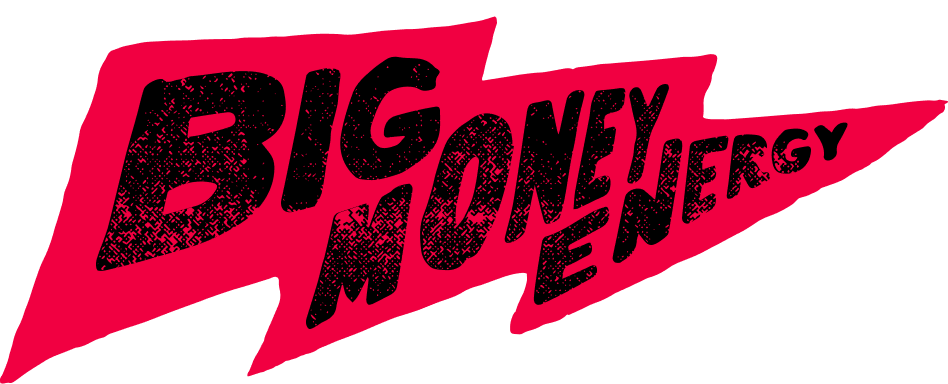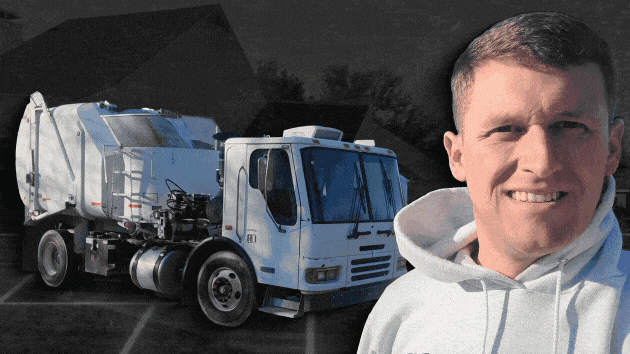
Hey Contrarians,
Today’s story is unbelievable.
How so? Let’s put it this way. If we challenged you to launch a full-on trash business in a month — truck, bins, customers, revenue, everything — could you do it?
Mind you, you have a software background. You’ve never had a blue-collar job. Oh, and your wife is about to give birth.
So the answer? No, you almost certainly couldn’t (and shouldn’t). At the very least, you’d need to have some crazy ideas, financial security, a lot of luck, and be HIGHLY desensitized to stress.
For Spencer Scott, all those stars just happened to align…

Today in 5 minutes or less, you’ll learn:

The origins of a garbage guru (in the making)
It’s not every day you hear a story like this.
From owning multiple software businesses to… garbage man.
Let’s rewind to where this story starts.
After graduating from college in 2014, Spencer Scott moved to Dallas, where he managed a local Target. He loved the company and role. The schedule? Not so much.
So, he went out and got a job in sales for a company that hosted cloud-based phone systems.
“It wasn’t like what you’re used to with a HubSpot or a Salesforce. You had to hunt, you had to go find the deals, you had to go door knock businesses,” he told us.
And so for a year and a half, that’s exactly what he did — and he excelled at it, becoming the company’s top sales rep and, later, a top rep at Vonage, a large competitor.
Then he accidentally started a company…
At Vonage, Spencer did something few would even think of.
“I had a customer come in who says, ‘Spencer, we won’t sign up unless you can connect our phone system to our custom database.’”
The deal would’ve meant a sweet commission check for him, but Vonage wasn’t interested in building a solution that served just one customer.
So in true entrepreneurial fashion, Spencer hired a developer on the side to build the solution and sold the deal anyway.
But he also realized, “There’s something here with this integration play, and I already had the developer. You know what? I’m going to go out and build this software company.”
Over the next few years, he managed to build it into a profitable $300k-$400k business called Loup, which he still owns today. And with those profits, Spencer eventually purchased another small software business — a screen-sharing platform called Median — for around $300k.
And that’s where the gears started turning…

All roads lead to the garbage dump
Now the real question.
How do we go from software developers and screen-sharing to, uh, THIS in Spencer’s driveway?
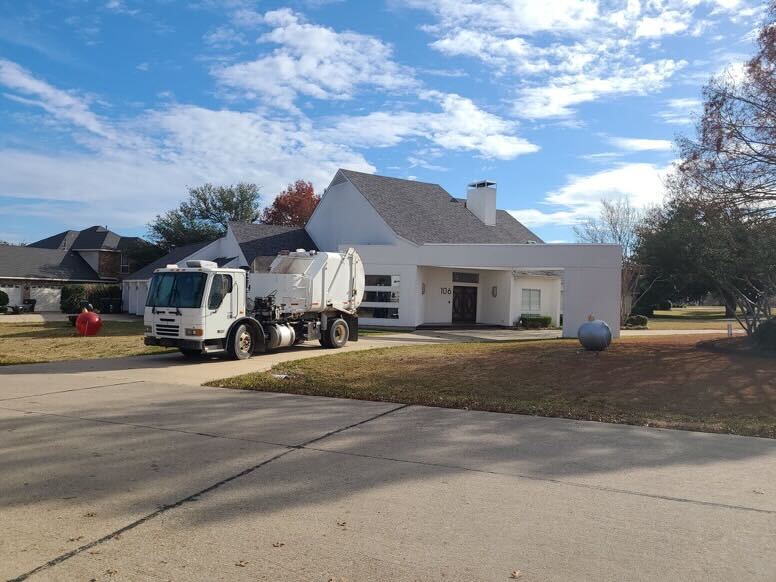
Well, you see, through his tech businesses, Spencer learned an important lesson about product-market fit.
“If you look at Loup, I had a customer before I started the company. So I didn’t know it at the time, but I had product-market fit. When I bought Median, I think part of the reason they were selling is they didn’t have product-market fit.”
The best problems to solve have clear product-market fit. And oftentimes, those problems are sitting right in front of your face.
… And that’s what happened with Spencer and trash.
“I saw a bunch of people on Facebook complaining about the trash company we have in my neighborhood,” Spencer told us.
“Every week they’re complaining. I live in this fancy gated community… And, you know, if their bins aren’t exactly where they put them, they’re going to complain.”
In the back of his mind, Spencer had always thought blue-collar businesses were special. He says his wealthiest neighbors own landscaping and drywall companies. “I’ve always kind of been jealous of these businesses,” he says. “They’re just never going to go away.”
So he starts doing some napkin math…
- 400 houses in his neighborhood
- $33-$50 a month for trash pickup
- No customer support needed
- 1 day of work a week (52 a year)
“… And I’m just starting to get blown away by this,” he said.
“But I’m not trying to be a garbage man.”
Not yet, at least. He shares the findings with a friend, who loves the idea and convinces Spencer to investigate further.
As it turned out, Spencer discovered that houses in his neighborhood are billed for trash individually. Yet businesses also aren’t allowed to door knock, so the current company had an effective trash monopoly… Unless they were challenged by someone on the inside.
“So I talked to my wife about it and decided to make a post on Facebook. It was like a big rant on how I didn’t like them. The reality is I didn’t care either way. I was just listening to people complain and reciting a lot of what people had already said.”
He asked if people would be interested in switching trash vendors if there was a better option. “That’s all I said. Didn’t say it was going to be me.”
Relatively speaking, that post went viral. Hundreds of likes and comments.
“I was like, oh, sh*t. I think we should start a trash company. But I’m not a risk taker, and a lot of people who say they’ll sign up for something online don’t actually end up doing it.”
Now pay attention to what he did next…

Selling it before it exists
So Spencer threw together a website using a pre-built Webflow template ready-made for trash businesses (’cause THAT’s a thing), and embedded a payment system inside.
“I needed to collect payments as a proof of concept that they’re bought into the idea,” he explained.
So he set up a monthly subscription for $33, requiring the first few months to be paid upfront.
“I went to my [software business’s] dev team and I was like, hey, guys, I want this to work, but the payment link itself isn’t good enough. We need some juice.”
The juice they ended up squeezing? Old — but perfectly workable — code from a Harry’s Razors referral signup page.
The referral deal he offered: “If you refer 5 people, you got a free t-shirt. If you referred 10 people, you got 3 months free. And if you referred, I think, 25, you could get the whole year free.”
Spencer got this experiment set up in just a few days, then headed back to Facebook.
“And I say, ‘If we can get 200 people to put up money for their first 3 months of service by January 1, I will start a trash company and service you guys. And here’s the no-brainer pitch — if we can’t get 200 people to sign up, I will refund your money.’”
Within 2 weeks, Spencer says he had 150 people sign up, raising him thousands of dollars to start funding the business.
“The money hits my account, and I started panicking a little bit. I’m like, this just became real. Do I push refund or do we go with it?”
With encouragement from his wife and money raised by pre-selling the service, Spencer decided to go with it.

The countdown begins…
“At this point, I had less than 30 days to buy a truck, buy bins, get all the trash bins deployed, and figure out how the truck works. It just was a lot.”
Yeah, no sh*t.
“And our third child was born in December.”
Oh wow. This is actually nuts.
Phase 1: The Truck
First thing’s first: if you’re gonna pick up trash, you’re gonna want a truck.
“Basically anyone selling trash trucks on Facebook marketplace owns trash companies,” Spencer says. “I was driving to meet these people, and they would tell me everything. Here’s what you want. Here’s what you don’t want. Here’s what to look out for. Here’s how you do this. Here’s how you do that.”
Eventually, he heard about a truck out in Tuscon, Arizona selling for the price he wanted — $40k — which he planned to finance completely with the pre-sale and business revenue.
“So I started messaging this guy, and he goes, ‘So you’re going to fly out here and come look at it?’ And I’m like, ‘Bro, what would I do? If I flew out there, I’d be like, yep, looks like a truck.’”
So he bit the bullet and made a deal, half upfront, half once the truck was on the trailer being shipped (which Spencer also had to pay for).

Not long after that, the truck was delivered.
But turns out the truck wasn’t the only thing being delivered that day…
“I’m dealing with a trash truck delivery from the waiting room while we’re at the hospital,” he says.
Because his wife was giving birth, Spencer (understandably) couldn’t make it to the truck delivery on time, but luckily his 82-year-old neighbor was able to help out:
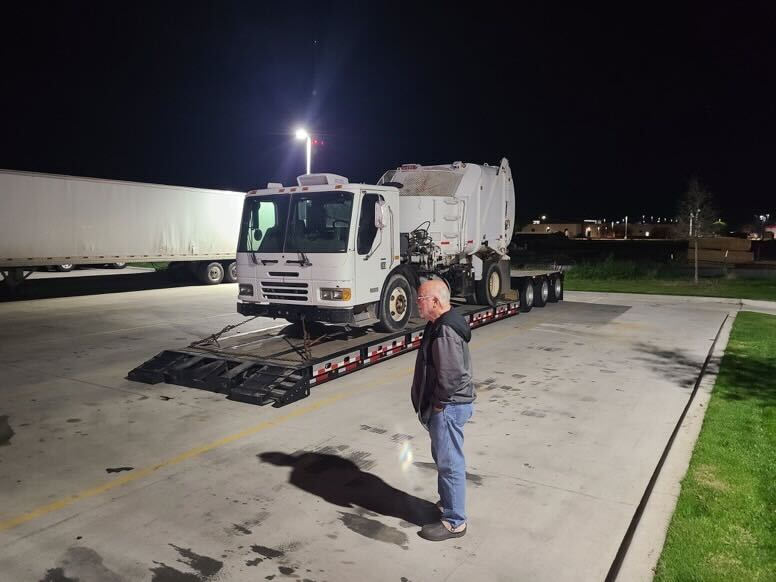
“Of course, a flood of problems hit us. Everything from dead batteries to the truck getting stuck on the trailer.”
But nonetheless, Spencer had a truck.
Phase 2: Secure the bins
Have you ever had less than 30 days to buy, clean, and distribute hundreds of trash bins? We certainly haven’t.
But Spencer has.
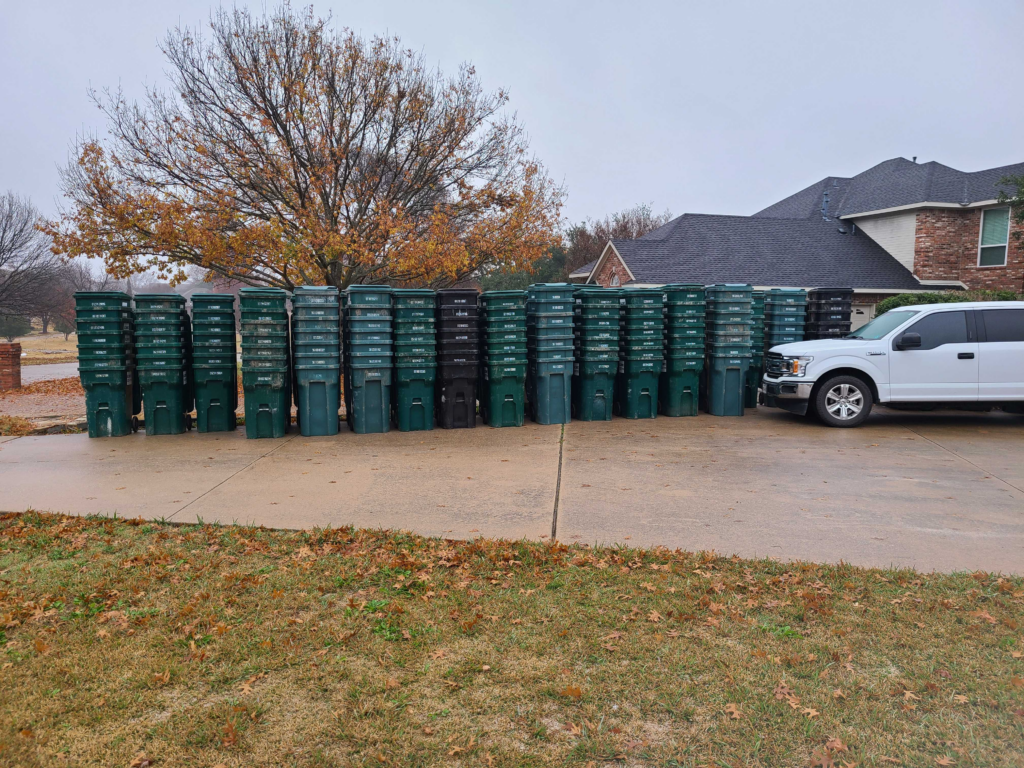
He managed to find a bunch of used bins for $35 each and get them shipped to Dallas from Michigan. He also bought $1k worth of stickers with his logo and paid a local teenager to slap them onto each bin.
And in case you were wondering: yes, this all happened right in his driveway and neighborhood.
Phase 3: Learning how to use the truck
“It was f*cking learning through fire,” as Spencer puts it. “A freaking riot.”
- How do you start it?
- How do you put it in drive?
- Why is there no park?
- How do you use air breaks?
- How do you work a hydraulic arm?
- How do you maintain it?
“I had a guy tell me I should buy an electric grease gun. I’ve never greased anything. Like, what does that even mean?”
Apparently a “grease gun” is used to prevent the bearings from getting chewed up. And this is a process Spencer can now explain to you in detail.
“I made a ton of mistakes… But I love it. I don’t know how to say this. I sometimes feel like I’m desensitized to stress. I think this stuff would throw a lot of people through the loop. And I’m just like, this is part of the adventure, baby. What’s next!?”

So, what’s next for Lone Star Trash?
“I like to say we’ve been in business 13 days, because we do it one day a week, and it’s been 13 days since January. The business has grown significantly. It’s just been nuts. We picked up another neighborhood, we sold all of the bins.”

To be clear, Spencer would love to get out of the driver’s seat. That’s been his goal since day 1. “It’s hard to hire for that position because it’s 1 day a week.”
You’re probably wondering how Spencer has time to both play trash man and run his 2 other companies. The answer: he doesn’t really. “What I need to do to step into more of an owner instead of operator position,” he says.
In the meantime, while working on expanding the business, he’s having lots of fun sharing his story online, connecting with other garbage biz owners, and taking people along for the ride on trash day. (One superfan even flew down from Pittsburgh.)
He also partnered with a creative agency to debut Lone Star Trash branded merchandise, for anyone to buy — and can you blame him?
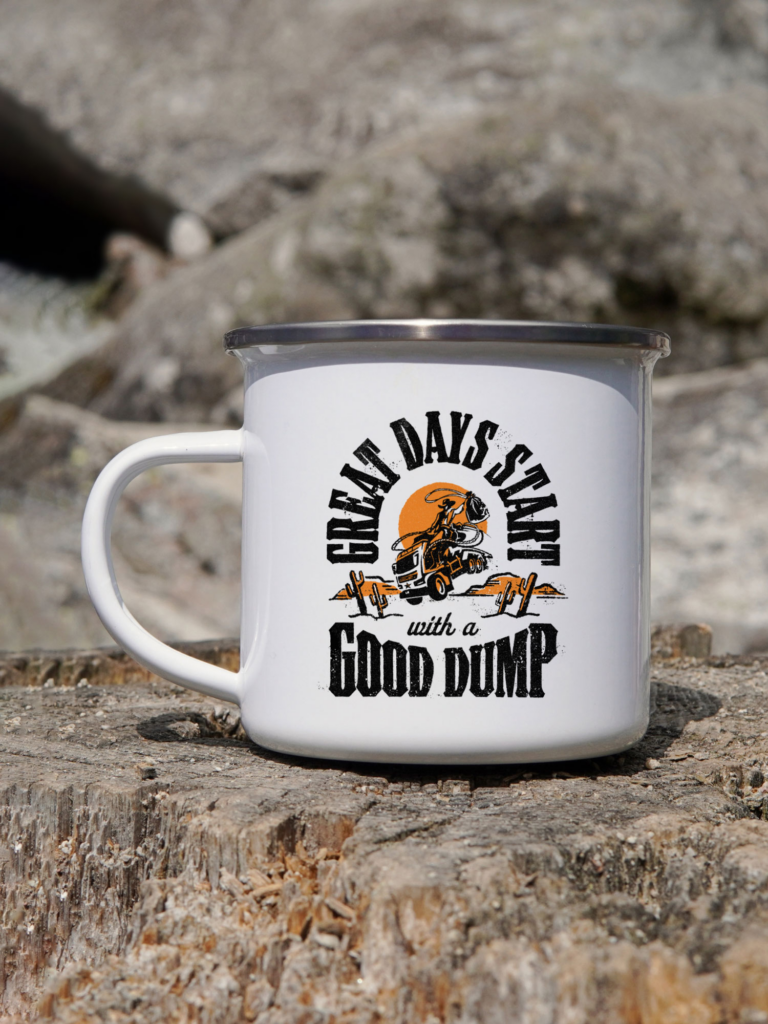
Interestingly, even some trash companies, he says, have reached out to him to help them improve their websites.
“Most of the companies we compete with have almost no internet presence, which is crazy to say in 2024. Compared to someone who’s run software companies, you’re gonna get dunked on. It’d be like a high schooler playing an NBA player.”
Looking ahead, Spencer sees a fairly wide open road for his biz — but admits he got lucky.
“I think this story is fun but slightly discouraging if I were to read it to myself. I took zero risk in starting this business. I took advantage of an opportunity that not everyone else has. That’s how I see it. Other people can see it another way.”
He adds, “I wouldn’t do this all over again unless I could do it the exact same way. It felt like I was bullied into the garbage business at my own will.”

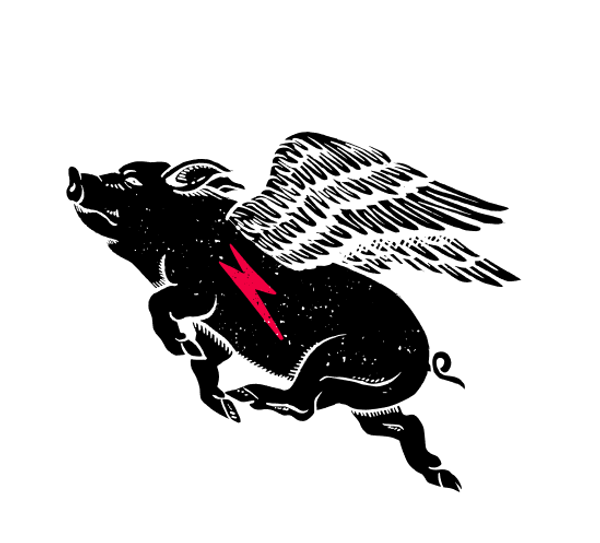
SO not boring…
🎟️ Join us live: Austin. April 9th. Grab a ticket before spots run out…
📘 No brainer: Get our free 2024 Small Biz Buyer Insights report right here




